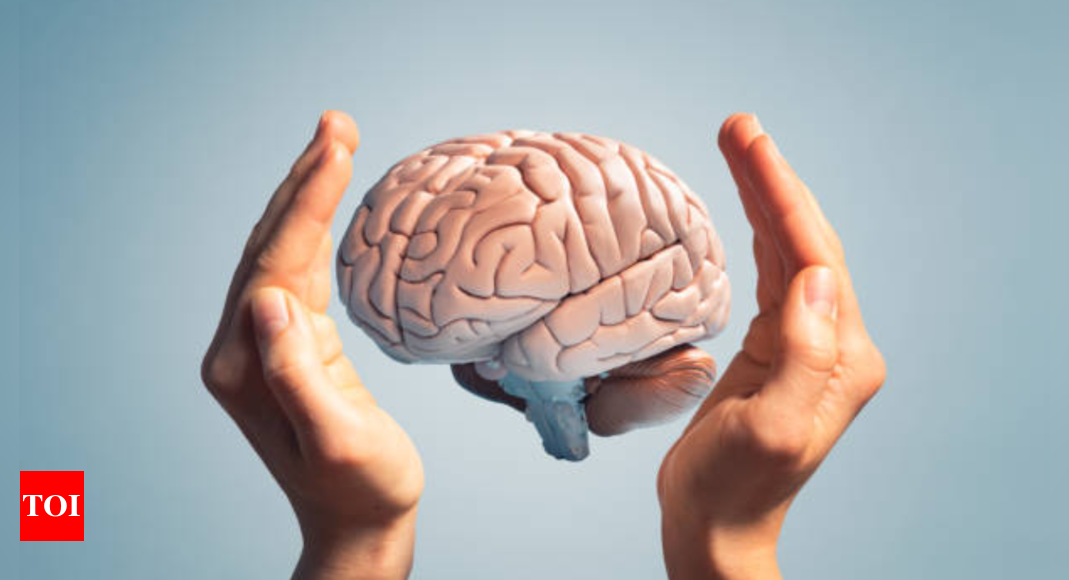Every year on October 21, World Alzheimer’s Day is celebrated to raise awareness of this debilitating disease. The goal is to educate the public about early detection, diagnosis, and management strategies. Dementia and Alzheimer’s diseaseAlzheimer’s disease (AD) is the most common cause of dementia, a broad term that includes conditions that impair memory and cognitive function. While AD accounts for 70-75% of dementia cases, other forms include vascular dementia, frontotemporal dementia, and dementia associated with Parkinson’s disease. Additionally, some reversible conditions such as drug toxicity, metabolic changes, and infections can mimic symptoms of dementia. Nearly 55 million people have dementia worldwide, a number expected to rise to 180 million by 2030. More than 60% of the total[người mắc chứng sa sút trí tuệ]dementia living in low- and middle-income countries. In India, nearly 8.8% of people over 60 years of age suffer from dementia. This is because the survival rate of the elderly is increasing with improved healthcare facilities worldwide. Dementia usually occurs after age 60. Dementia has significant physical, psychological, social and economic impacts. In a 2019 study, the economic impact associated with dementia was nearly 1.3 trillion globally. When we talk about dementia – we mainly mean dementia of the Alzheimer’s type as this is the most common type of dementia. Global impact Dementia is a growing global health concern, with an estimated 55 million people affected worldwide. This number is expected to increase to 180 million by 2030. More than 60% of people with dementia reside in low- and middle-income countries. In India alone, nearly 8.8% of the population over 60 years old has dementia, largely due to increased life expectancy. Dementia has significant physical, psychological, social and economic consequences. A 2019 study estimated the global economic impact of dementia at nearly $1.3 trillion. Understanding Alzheimer’s Disease Alzheimer’s disease is a progressive neurodegenerative disorder characterized by memory loss and cognitive decline. It mainly affects people over 60 years old, with women more susceptible than men. Although often mistaken as a normal part of aging, Alzheimer’s disease can be diagnosed in people as young as 40, especially in cases where there is a genetic predisposition. Alzheimer’s disease typically progresses through three stages: Early stage: Mild mood swings, behavioral changes, and difficulty remembering recent events. In the early stages – mild mood swings or behavioral changes not usually seen in healthy people, along with mild memory impairment, mainly due to recent events (may forget stored things staying in one place, things to do, difficulty remembering events )Mid stage: Worsening memory problems, challenges with familiar tasks, and difficulty with language and orientation. In the middle stage, memory symptoms become more severe to the point of difficulty remembering familiar names, and sometimes being unable to recognize relatives and friends. Difficulty finding your way home when going out… Other symptoms such as depression, anxiety, agitation, hallucinations and sleep disorders are common. His daily activities were significantly affected at this stage. Late stage: Severe memory loss, inability to recognize loved ones, loss of independence and difficulty in basic daily activities. In the late stages, the affected person cannot even recognize his or her family members, completely loses cognitive abilities, and loses bowel and bladder control. Death often occurs due to many systemic causes, such as infection, pneumonia, etc. The main pathological changes in Alzheimer’s Disease involve the accumulation of beta-amyloid plaques outside neurons and tangles tau protein inside nerve cells. These abnormal proteins disrupt nerve function and communication.[personswithdementialiveinlow-andmiddle-incomecountriesInIndianearly88%ofpeoplewhoareolderthan60yearsofagesufferfromdementiaThisisbecauseoftheincreasedsurvivaloftheagedpopulationwithimprovedhealthcarefacilitiesallovertheworldDementiaiscommonlyseenaftertheageof60yearsDementiahassignificantphysicalpsychologicalsocialandeconomicimpactInastudyin2019thedementiarelatedeconomicalimpactwasnearly13trilliongloballyWhenwetalkaboutdementia–mostlywemeandementiaofAlzheimer’stypeasitisthemostcommontypeofdementiaGlobalimpactDementiaisagrowingglobalhealthconcernwithanestimated55millionpeopleaffectedworldwideThisnumberisprojectedtoriseto180millionby2030Over60%ofindividualswithdementiaresideinlow-andmiddle-incomecountriesIndiaalonehasnearly88%ofitspopulationover60yearsofagelivingwithdementialargelyduetoincreasedlifeexpectancyDementiahassignificantphysicalpsychologicalsocialandeconomicconsequencesA2019studyestimatedtheglobaleconomicimpactofdementiaatnearly3trillionUnderstandingAlzheimer’sDiseaseAlzheimer’sDiseaseisaprogressiveneurodegenerativedisordercharacterizedbymemoryimpairmentandcognitivedeclineItprimarilyaffectsindividualsover60withwomenbeingmoresusceptiblethanmenWhileit’softenmistakenasanormalpartofagingAlzheimer’sDiseasecanbediagnosedinindividualsasyoungas40particularlyincaseswithageneticpredispositionAlzheimer’sDiseasetypicallyprogressesthroughthreestages:Earlystage:MildmoodchangesbehavioralalterationsanddifficultyrememberingrecenteventsIntheearlystage-mildmoodchangesorbehavioralchangeswhicharenotnormallyseeninhealthyindividualsalongwithmildmemoryimpairmentmostlyforrecentevents(maykeepforgettingthethingskeptinanplacethingstododifficultytoremembertheevents)Middlestage:WorseningmemoryproblemschallengeswithfamiliartasksanddifficultieswithlanguageandorientationInthemiddlestage-memorysymptomsworsentotheextentofdifficultyrememberingthefamiliarnamessometimesnotabletorecognizetherelativesandfriendsDifficultytofindthewaybackwhengoingoutetcOthersymptomslikedepressionanxietyagitationhallucinationandsleepdisturbancesarecommonHisdailyactivitiesaresignificantlyaffectedatthisstageLatestage:SeverememorylossinabilitytorecognizelovedoneslossofindependenceandchallengeswithbasicdailyactivitiesInthelatestagestheaffectedpersoncannotevenrecognizehisownfamilymemberstotallossofinsightlossofbowelandbladdercontrolDeathusuallyoccursduetomultiplesystemiccauseslikeinfectionpneumoniaetcTheprimarypathologicalchangesinAlzheimer’sDiseaseinvolvetheaccumulationofbeta-amyloidplaquesoutsidenervecellsandtauproteintanglesinsidenervecellsTheseabnormalproteinsdisruptneuronalfunctionandcommunication[personswithdementialiveinlow-andmiddle-incomecountriesInIndianearly88%ofpeoplewhoareolderthan60yearsofagesufferfromdementiaThisisbecauseoftheincreasedsurvivaloftheagedpopulationwithimprovedhealthcarefacilitiesallovertheworldDementiaiscommonlyseenaftertheageof60yearsDementiahassignificantphysicalpsychologicalsocialandeconomicimpactInastudyin2019thedementiarelatedeconomicalimpactwasnearly13trilliongloballyWhenwetalkaboutdementia–mostlywemeandementiaofAlzheimer’stypeasitisthemostcommontypeofdementiaGlobalimpactDementiaisagrowingglobalhealthconcernwithanestimated55millionpeopleaffectedworldwideThisnumberisprojectedtoriseto180millionby2030Over60%ofindividualswithdementiaresideinlow-andmiddle-incomecountriesIndiaalonehasnearly88%ofitspopulationover60yearsofagelivingwithdementialargelyduetoincreasedlifeexpectancyDementiahassignificantphysicalpsychologicalsocialandeconomicconsequencesA2019studyestimatedtheglobaleconomicimpactofdementiaatnearly3trillionUnderstandingAlzheimer’sDiseaseAlzheimer’sDiseaseisaprogressiveneurodegenerativedisordercharacterizedbymemoryimpairmentandcognitivedeclineItprimarilyaffectsindividualsover60withwomenbeingmoresusceptiblethanmenWhileit’softenmistakenasanormalpartofagingAlzheimer’sDiseasecanbediagnosedinindividualsasyoungas40particularlyincaseswithageneticpredispositionAlzheimer’sDiseasetypicallyprogressesthroughthreestages:Earlystage:MildmoodchangesbehavioralalterationsanddifficultyrememberingrecenteventsIntheearlystage-mildmoodchangesorbehavioralchangeswhicharenotnormallyseeninhealthyindividualsalongwithmildmemoryimpairmentmostlyforrecentevents(maykeepforgettingthethingskeptinanplacethingstododifficultytoremembertheevents)Middlestage:WorseningmemoryproblemschallengeswithfamiliartasksanddifficultieswithlanguageandorientationInthemiddlestage-memorysymptomsworsentotheextentofdifficultyrememberingthefamiliarnamessometimesnotabletorecognizetherelativesandfriendsDifficultytofindthewaybackwhengoingoutetcOthersymptomslikedepressionanxietyagitationhallucinationandsleepdisturbancesarecommonHisdailyactivitiesaresignificantlyaffectedatthisstageLatestage:SeverememorylossinabilitytorecognizelovedoneslossofindependenceandchallengeswithbasicdailyactivitiesInthelatestagestheaffectedpersoncannotevenrecognizehisownfamilymemberstotallossofinsightlossofbowelandbladdercontrolDeathusuallyoccursduetomultiplesystemiccauseslikeinfectionpneumoniaetcTheprimarypathologicalchangesinAlzheimer’sDiseaseinvolvetheaccumulationofbeta-amyloidplaquesoutsidenervecellsandtauproteintanglesinsidenervecellsTheseabnormalproteinsdisruptneuronalfunctionandcommunication
Diagnosis and treatment
Diagnosing Alzheimer’s disease usually involves a combination of medical history, cognitive assessment, and brain imaging tests. Although there is currently no cure, medications can help slow the progression of the disease in some cases. Additionally, controlling risk factors such as high blood pressure, diabetes and obesity can help reduce the risk of developing Alzheimer’s disease. Usually doctors will investigate these patients to find if there is a treatable cause, the key investigations are some blood tests, brain scans (PET scans), CSF examinations . Recently, two drugs approved by the FDA-US have brought much hope to people with Alzheimer’s disease. Both of these are thought to be helpful if provided at an early stage. Support and Resources Many NGOs and Government associations have been established to help people with Alzheimer’s disease and their caregivers around the world including India, the aim of these organizations is These are education of caregivers, financial assistance, emotional support, practical advice on managing the challenges associated with this disease, education of health care providers, and Stay up to date on various advances in research related to Alzheimer’s Disease. (Author: Dr. Sreekanta Swamy, Senior Consultant – Neurology, Aster RV Hospital)










